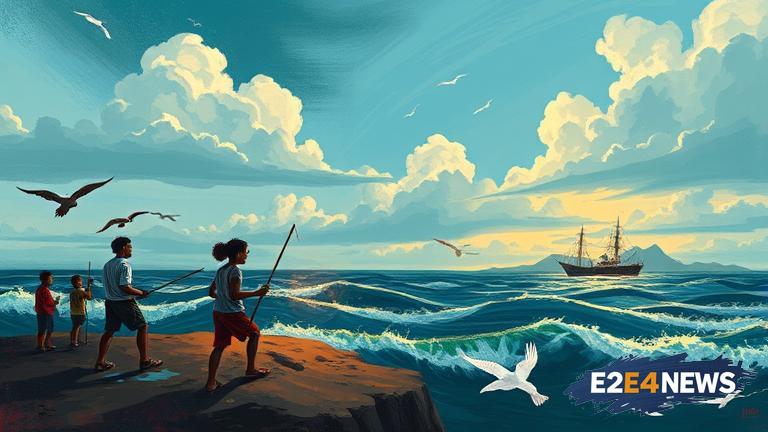The Pacific region is on the frontline of climate change, with rising sea levels, intense storms, and droughts threatening the very existence of island nations. The impact of climate change on Pacific kids is particularly devastating, with many facing displacement, food and water scarcity, and increased vulnerability to diseases. The region’s children are sounding the alarm, calling on world leaders to take immediate and drastic action to reduce greenhouse gas emissions and transition to renewable energy sources. Climate change is not just an environmental issue, but a human rights issue, with the Pacific region’s children and future generations facing a bleak future if urgent action is not taken. The science is clear: human activities are causing the Earth’s temperature to rise, and the consequences are far-reaching and devastating. Pacific Island nations are among the most vulnerable to climate change, with many facing existential threats to their very survival. The region’s coral reefs, which provide a vital source of food and income for many communities, are bleaching and dying due to rising sea temperatures. The consequences of inaction will be catastrophic, with many Pacific Island nations facing displacement, migration, and even extinction. The Pacific region’s children are not just victims of climate change, but also powerful agents of change, with many taking to the streets to demand action from their leaders. The region’s youth are calling for a transition to renewable energy, an end to fossil fuel subsidies, and a commitment to limiting global warming to 1.5 degrees Celsius above pre-industrial levels. The window for action is rapidly closing, and the world must come together to support the Pacific region’s children and future generations. The international community has a moral obligation to act, and to support the Pacific region’s efforts to adapt to the impacts of climate change. This includes providing climate finance, technology, and capacity-building support to help the region’s countries transition to a low-carbon economy. The Pacific region’s children are also calling for climate justice, with many arguing that the region’s countries are being forced to pay the price for the emissions of other nations. The region’s youth are demanding that world leaders take responsibility for their actions, and that they prioritize the needs and rights of Pacific Island nations. The fight against climate change is not just a technical challenge, but a moral and ethical one, with the Pacific region’s children and future generations hanging in the balance. The world must come together to support the Pacific region’s efforts to combat climate change, and to ensure that the region’s children and future generations have a safe and sustainable future. The clock is ticking, and the world must act now to avoid the worst impacts of climate change. The Pacific region’s children are counting on us, and it is our moral obligation to act. The region’s youth are leading the charge, and it is time for world leaders to follow their lead and take urgent action to address the climate crisis. The future of the Pacific region’s children and future generations depends on it, and the world must come together to support their efforts to combat climate change.
